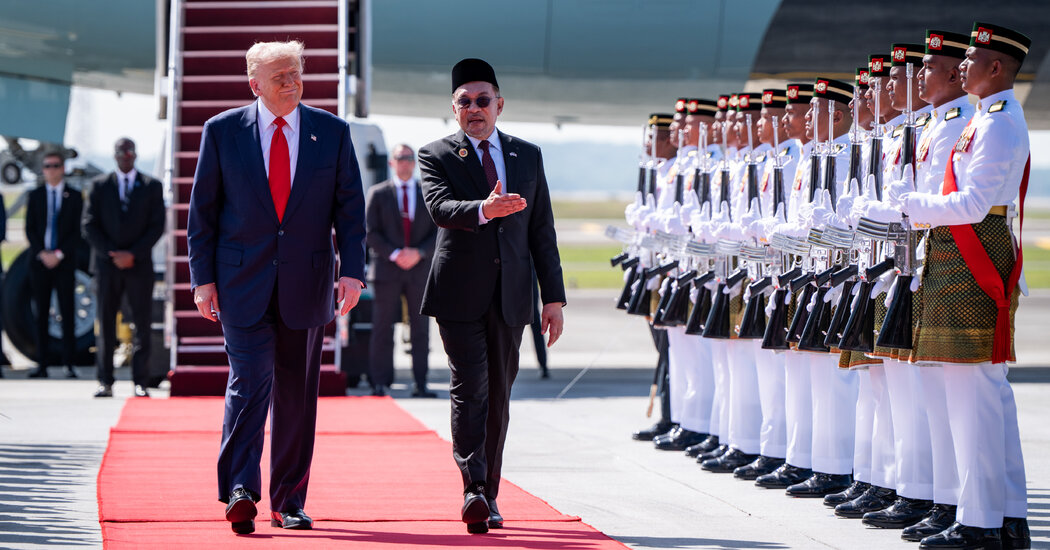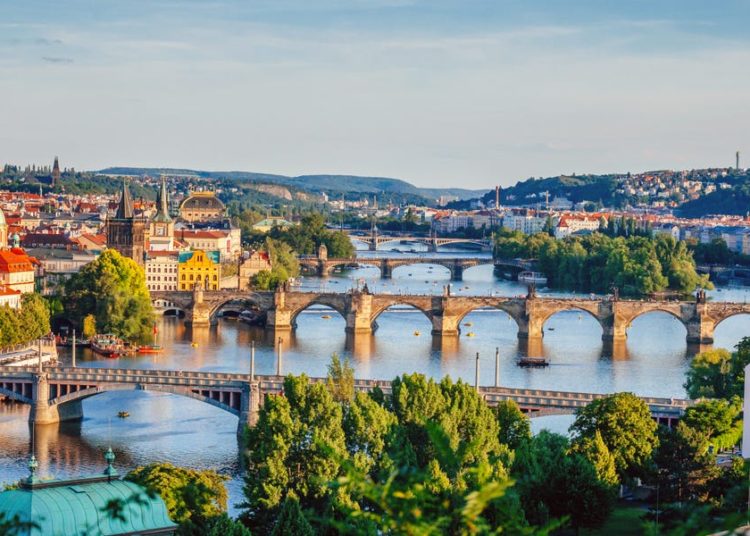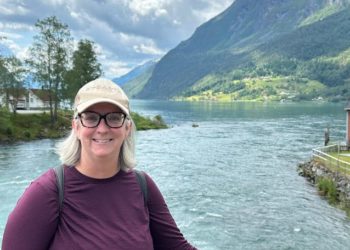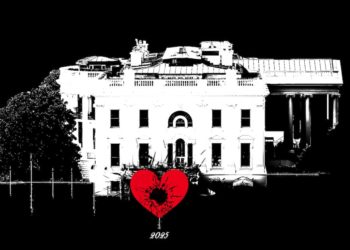The durability of the American experiment has been tested in the nine months since President Trump’s return to the White House, with institutions from Congress to the judiciary struggling or declining to check his aggressive attempts to flout the law and expand his power.
During Mr. Trump’s latest trip abroad, on a six-day sojourn through Asia, he has launched, fists pumping, onto the world stage, chasing a trade deal with China and compelling several other Asian governments to sign economic agreements. Several of the leaders he will encounter this week are autocrats, or are presiding over vulnerable democracies. And some are open fans of his bulldozing approach to governing.
In Malaysia, Prime Minister Anwar Ibrahim praised Mr. Trump’s willingness to flout security protocols by letting him ride along in the American presidential limousine shortly after Mr. Trump landed in Kuala Lumpur.
“We admire your tenacity and courage because the world needs leaders who promote peace strongly,” Mr. Anwar told the president when the pair appeared together on Sunday in observance of a peace deal between Thailand and Cambodia. “And to achieve that, you have to break some rules, as you did today.”
Mr. Anwar also joked of his time in prison on corruption and sodomy crimes, charges he and his supporters have long maintained were part of a sham orchestrated by his predecessor. “I was in prison, and you almost got there,” Mr. Anwar said, referring to Mr. Trump’s felony convictions.
For his part, Mr. Anwar’s government has been criticized for a worsening climate for freedom of expression, driven in part by pressure from the country’s right wing.
As leaders like Vladimir V. Putin of Russia and Mr. Anwar know, sympathizing about political persecution is music to the ears of Mr. Trump, who is carrying out widespread federalized retribution against his political enemies.
Throughout his stops in Malaysia, Japan and South Korea, Mr. Trump represents a shut-down federal government and an ever-deepening American political divide. His supporters at home give him high marks on his immigration crackdown and his pursuit of global peace deals. But Mr. Trump’s approval rating has fallen, and most Americans believe the country is heading in the wrong direction, according to recent polls.
During his second term, Mr. Trump has laid out a set of beliefs that alarm those who study the decline of democracy, and his moves have been closely watched by many of the same governments he will interact with this week.
Mr. Trump thinks negative news coverage of him should be illegal. He has pressured the Department of Justice to carry out retribution against his political enemies. He has ordered the military to put boots on the ground in American cities and carry out missile strikes against people in the Caribbean. U.S. citizens have been swept up in immigration raids and held without regard to their constitutionally protected rights.
“President Trump presents to the world an America under democratic pressure, and that’s a very different image than what previous presidents have projected,” said Thomas Carothers, the director of Carnegie’s Democracy, Conflict and Governance Program.
In Mr. Trump’s version of democracy, human rights, due process and freedom of expression are increasingly being treated not as inherent rights but as privileges subject to removal.
In Japan, the next stop on his trip, Mr. Trump’s approach has helped to galvanize a right-wing movement focused on nationalism, economic populism and a distrust of foreigners. The recent success of far-right parties has left many in Japan wondering if their country is belatedly seeing the angry anti-establishment populism that has transformed the United States and other developed democracies.
“A new movement has emerged in Japan similar to the Trump movement, which is trying to create division within Japan,” said Kazuhiro Maeshima, a professor of American politics and diplomacy at Sophia University in Tokyo. “They’re trying to gain support by inciting Japanese nationalism and xenophobia. It’s similar to Trump’s approach.”
The election this month of Sanae Takaichi, the first woman to serve as prime minister, in some ways reflects that shift. Ms. Takaichi, with whom Mr. Trump will spend Tuesday, was already one of the most conservative voices in her Liberal Democratic Party, Japan’s main political bloc. During her campaign, she promised to restore a sense of nationalism and to more strictly regulate immigration and tourism.
With Mr. Trump’s attacks on free speech and human rights in recent weeks, many in Japan wonder if the United States will continue its traditional role as a beacon of democracy.
“We have always seen the United States as the real teacher of democracy,” said Mieko Nakabayashi, a political science professor at Waseda University in Tokyo. “Mr. Trump is now showing us the limits of that ideal.”
Unlike his American predecessors, Mr. Trump is not even pretending to tout the benefits of democracy as he travels in Asia. Nor does Mr. Trump see the U.S. relationship with China as representative of an existential battle between the ideals of democracy and the specter of growing global authoritarianism.
As he pursues trade deals with a string of countries he has strong-armed with aggressive tariff policies, he is keeping his sights set on China, a country that has not yet capitulated to his demands. Mr. Trump noted this week that his tariff on Chinese goods was set to rise to 157 percent on Nov. 1, just days after he and Mr. Xi are scheduled to meet.
“When President Trump sees himself together with President Xi, he doesn’t see democracy versus autocracy in the room,” Mr. Carothers said. “He sees two competing economic systems.”
But Mr. Trump has also openly admired Mr. Xi’s consolidation of power. In 2018, when a cordial personal relationship forged with Mr. Xi at the beginning of Mr. Trump’s first term was already devolving into a trade dispute with implications for the global economy, Mr. Trump told donors at Mar-a-Lago, his Florida retreat, that Mr. Xi had become a “president for life.” He wondered out loud if he should pursue the same outcome for himself.
“I think it’s great,” Mr. Trump said. “Maybe we’ll want to give that a shot someday.”
Allies of Mr. Trump are serious about him serving a constitutionally prohibited third term. His former strategist Stephen K. Bannon said recently that there is a “plan” to keep Mr. Trump in office beyond 2028.
If Mr. Trump appears with Mr. Xi at a regional summit in South Korea as planned, it will be the first time the two men have seen each other in person since 2019.
They will be meeting in a country scarred by deep political divisions and by a traumatic, if short-lived, declaration of martial law last year by a president who has since been ousted.
For generations, South Koreans had largely seen the United States as an ally to count on in times of crisis. But that is now being questioned after Mr. Trump slapped painful tariffs on the country and sent federal agents to arrest hundreds of South Korean citizens working at a Hyundai-LG plant in the state of Georgia in September.
“We are hit by a double whammy of internal and external crises,” said Lee Yong-gil, who leads an ongoing “No Trump” sit-in protest in central Seoul.
But South Koreans who experienced the turbulence of Mr. Trump’s first term have also developed a long-term perspective about their country’s alliance with the United States and will try to weather the storms of his second term, said Sung Deuk Hahm, the dean of Kyonggi University’s Graduate School of Political Studies in Seoul.
“Of course, people are seething with complaints about Trump’s excessive demands and the way he has been treating an ally. They know the problems and weaknesses of his authoritarian style,” Mr. Hahm said. “But they also know that the alliance with the United States is critically important for their country’s survival. To them, the United States is more important than Trump.”
Steven Levitsky, a professor of government at Harvard who studies authoritarianism and threats to democracies, said that America’s allies have been mystified that American citizens have not done more to protest the militarization of several of the country’s cities and the weaponization of the judiciary against Mr. Trump’s enemies.
“When South Korea’s president declared martial law, South Koreans mobilized in an instant, and in three hours, they put an end to martial law,” Mr. Levitsky said. “Americans have done nothing. Americans are whistling past the cemetery, and that’s another thing that citizens everywhere, all of our allies, are looking at and cannot fathom.”
Katie Rogers and Javier C. Hernández reported from Tokyo, Erica L. Green from Kuala Lumpur, Malaysia, and Choe Sang-Hun from Seoul. Kiuko Notoya contributed reporting from Tokyo.
Katie Rogers is a White House correspondent for The Times, reporting on President Trump.
Erica L. Green is a White House correspondent for The Times, covering President Trump and his administration.
Javier C. Hernández is the Tokyo bureau chief for The Times, leading coverage of Japan and the region. He has reported from Asia for much of the past decade, previously serving as China correspondent in Beijing.
Choe Sang-Hun is the lead reporter for The Times in Seoul, covering South and North Korea.
The post As This President Tours Asia, Democracy’s Ideals Aren’t on the Agenda appeared first on New York Times.




